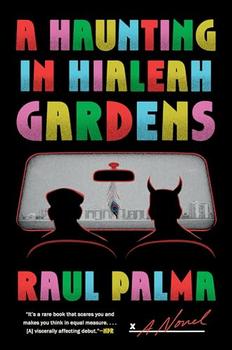Summary | Excerpt | Reviews | Beyond the Book | Read-Alikes | Genres & Themes | Author Bio

My Life with Multiple Personality Disorder
by Robert B. OxnamThis article relates to A Fractured Mind
According to the Diagnostic and Statistical Manual of Mental Disorders, 4th
Edition, the primary characteristic of
Disassociate Identity Disorder (DID), formerly known as Multiple Personality Disorder (MPD) is the existence of more than one distinct
identity or personality within the same individual. The identities will ‘take
control’ of the person at different times, with important information about the other identities out of conscious awareness. This differs from Schizophrenia, the symptoms of which include delusions and hallucinations, disorganized behavior and/or speech.
The most famous MPD sufferer is arguably Shirley Ardell Mason (1923-1998),
better known as "Sybil". In the early 1950s, having been plagued by blackouts and breakdowns for many years, Mason visited Dr Cornelia Wilbur who diagnosed her with MPD, and during 11 years of therapy found 16 personalities inside Mason, which she helped Mason integrate into a whole. In 1973, journalist Flora Rheta Schreiber wrote Mason's story, changing her name to Sybil to protect her privacy. The publication of Sybil opened the doors to a massive
increase of diagnosed MPD cases (according to one source there were 50 known cases in the USA in 1973, by 1990 20,000 cases had been diagnosed).
In 1998, after reviewing some of the original interview tapes, psychologist Robert Rieber told the American Psychological Association that he'd found tape recorded conversations between Sybil's psychiatrist, Dr. Cornelia Wilbur, and Flora Schreiber that document "the fraudulent construction of a multiple personality."
Rieber was in possession of the tapes because he was a former friend of Shreiber who gave him the tapes in 1972 for a research study he was considering doing. The project didn't happen so the tapes remained in his drawer for 25 years until 1997, when comments by Herbert Spiegal, who had been Mason's therapist when Wilbur was out of town and had also used her in hypnotism research (and had long questioned the case), triggered Rieber's memory. The truth will never be known as Schreiber died in 1988, Mason in 1992 and and Wilbur in 1998. For more information read these 1998 Articles from The San Francisco Chronicle and Reuters.
Filed under Medicine, Science and Tech
![]() This article relates to A Fractured Mind.
It first ran in the February 7, 2007
issue of BookBrowse Recommends.
This article relates to A Fractured Mind.
It first ran in the February 7, 2007
issue of BookBrowse Recommends.




Children are not the people of tomorrow, but people today.
Click Here to find out who said this, as well as discovering other famous literary quotes!
Your guide toexceptional books
BookBrowse seeks out and recommends the best in contemporary fiction and nonfiction—books that not only engage and entertain but also deepen our understanding of ourselves and the world around us.